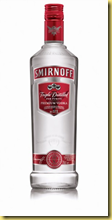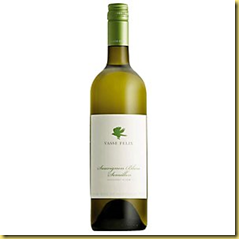Shanghai ·
Wed 15 Sep 2010
Now it’s the time for us to consider, what China
would like to be within the great process of urbanization. In economic aspect,
wealth distribution is of great importance.
The rising inequality in China is indicated by the
unequal allocation of the outcome from economic growth, that some personnel
earns significantly more than others. Still, but, most of the population still
can get something – though the inequality level has been among one of the most
grave (GENI >= 0.47, while 0.4 as the warning line) – the society keeps
relatively stable (other factors may be identified as well).
The quickly expending housing market may imperil a
large group of population, exacerbating their ‘real welfare’. House is the most
significant component of a family’s wealth. At a world-wide average, it
accounts for one-third of a family’s total property, and such ratio in East
Asia is even close to half.
In an efficient market, housing price is determined by
purchasing power. One of the key indicator is the ratio of house-price to
income – the price of the house to the annual income of a family (such
indicator for America»
4, UK » 7 in late 2008, and »8 for HK and Japan). And further, such ratio is
decided by the opportunity cost, as the money that used to purchase housing
property can be used to invest stocks or bonds. This means, in an efficient
market, the growth rate of housing price should equal to the sum of return rate
for bonds plus the risk premium (no arbitrage).
Another way to consider the mechanism is to compare
the growth rate of housing price with the average growth rate of per capita
income. In the long run, the two rates should be the same. If the property
price grows more quickly than per capita income, the demand of house will be
substantially impacted. By considering the influence of depreciation, the
growth rate of house price should equal to the growth rate of per capita income
less depreciation.
In following 20 years, the nominal per capita income
growth rate in China is estimated to be around 10%; take depreciation rate as
1.5%, and take annual return from rental as 3%, and tax = 20%, impacting the
gross return of 0.8%. The actual return for purchasing the house should be
around 7.5%, a very attractive figure. (average annual return of S&P 500 in the past half century is
about 9%). This is the initiative why Chinese family should buy their own
house.
However, the trouble here is that current pricing
level includes the estimated future growth of the economy. The house-price to income ratio for
China is around 15 ~ 20 (recall a typical figure for a well developed economy
should be 8).
Again, assume that current housing price has included
the following 10 years’ estimated growth, then the only return from housing
investment is the interest return (no capital gain as assuming no further
growth of house price in next 10 years). In most China’s cities, the rental return is around 3%~4%,
considering 1.5% depreciation, and we can get that the nominal return from
investing in house is merely 1.5% ~ 2.5%. This is far less attractive than that
of 10-year government bond, giving an annual yield of 4%. It’s more than
difficult to say conducting such investment makes sense.
Three factors largely contribute to the housing
bubble: relatively low debt yield, a will of speculation on capital gain, and
the ‘grey income’.
In a closed economy, the debt yield should be roughly
equal to average per capita income growth rate. But in China the gap has been
more than doubled (8%~10% earning growth vs. 4% return in government bonds).
The arbitrage opportunity induces an expectation of RMB appreciation (against
US dollars). To balance the relationship between China’s bond yield and the
economic growth, per capita income growth rate may need to cut to half of the
current level, and the exchange rate of RMB doubles (against US$, as Japanese
Yen did in 1980s). Then the bond yields could be roughly the same in China and
US, and the house price may go back to ‘normal’ level. However, both of the two
strategies seem to be unacceptable to China’s economy, giving the content of
enormous urbanization in progress and great demand of rapid economic
development. Such contradiction provides the excess liquidity, and is expected
to live in the long-run.
The first factor is no longer the main driver for the
housing market, but rather, speculative behaviour is. Most of the investors
expect the house price to increase to get the capital gain (difference between
the purchasing and selling price.), since the interest gain from housing
investment is very unattractive, as discussed above. Generally, when everyone is ‘searching for’ the capital gain,
or in other words, an expectation of increase in price becomes the main
incentive for demand in the long period, the capital bubble appears.
The last factor, the ‘grey income’ cannot be ignored.
A recent report issued by NERI says that the grey income in 2009 is around 5.4
trillion RMB. How much of such enormous amount of money goes to the housing
market? It’s a problem left to solve. The co-existence of high house price and
high house vacancy rate may attribute to this (fundamentally, lack of
investment channels à
only two options available: stock or housing market?)
It is estimated that the total market value of
China’s housing industry in 2009 is more than 92 trillion RMB. This is about 3
times of 2009’s GDP (34 trillion RMB).
The housing bubble surely exist.


![EFEEDHA6A26R]THY$Q6[@RI EFEEDHA6A26R]THY$Q6[@RI](https://pn24fw.bay.livefilestore.com/y1meyafc4FiUUToZq0ES5sr62r6MjqTA-pRxLt2jMqJIw2qm1X36k36ZKkkEG_ezHsOW3URqbnIkeC55OFzmP5yI6YmwN7w4gDBeMP6beHg-9_HA2b8PfhV3b8MQ9pT5ShvrtSW0aq60GwymxrNOwsnYw/EFEEDHA6A26R]THY$Q6[@RI_thumb.gif)




 Smirnoff Red Label
Smirnoff Red Label






